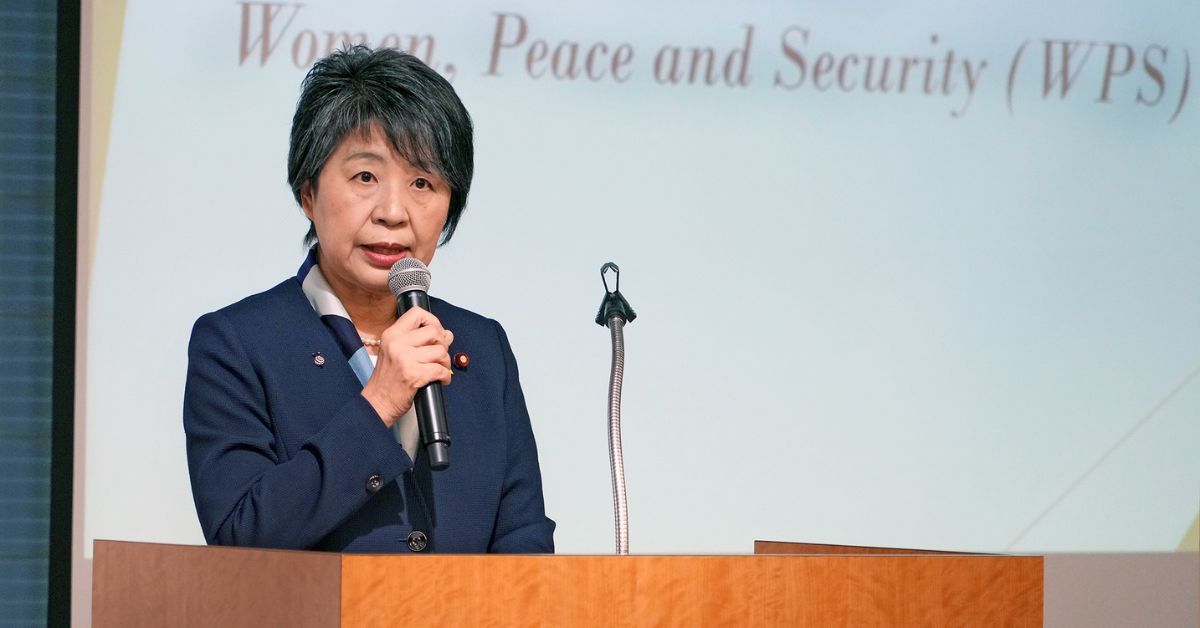ABU DHABI — The World Trade Organization’s (WTO) 13th Ministerial Conference (MC13) in Abu Dhabi next week presents an opportunity for the organization to prepare itself to address global challenges, according to Japanese Foreign Minister Yoko Kamikawa, speaking with the Emirates News Agency (WAM).
MC13 occurs as the rules-based multilateral trading system, with the WTO at its core, confronts several geopolitical and economic challenges, she noted during an email interview with WAM from Tokyo.
“The conference is dubbed the ‘Reform Ministerial.’ We must seize this chance to transform the WTO to prove that the organization can effectively tackle these global challenges by advancing necessary reforms across all key functions,” Kamikawa emphasized.
UAE at the Forefront
The UAE is set to host MC13 from February 26 to 29, 2024, in Abu Dhabi, following its successful organization of COP28, the UN Climate Conference, in Dubai in December 2023. Approximately 164 nations and trading blocs will attend the Ministerial Conference, the WTO’s highest decision-making body, which typically convenes every two years.
The Japanese senior diplomat commended the UAE Government and Dr. Thani bin Ahmed Al Zeyoudi, Minister of State for Foreign Trade and MC13 Chair, for their leadership and efforts in hosting and leading this conference. “I would also like to express my deep respect for the UAE for consistently being a leader in championing the value of free trade.”
As significant trading partners that value free trade, Japan and the UAE are collaborating closely to ensure the success of MC13, aiming to strengthen a rules-based multilateral trading system with the WTO at its center, Kamikawa confirmed.
WTO Reforms
Discussing the WTO reforms, the foreign minister indicated that members must progress in this area to equip the WTO to face new global challenges such as climate change, supply chain disruptions, the increasing divide among countries, and obstacles in promoting digital trade. She stressed the importance of inclusivity in global trade to guarantee the participation of all individuals, regardless of gender or background.
Kamikawa expressed her country’s “strong hopes” for a positive outcome on dispute settlement reform at MC13, which would set the stage for a fully functional dispute settlement system accessible to all members by 2024. Reinforcing the WTO’s deliberative function is also crucial, she added, allowing the global body to address today’s trade challenges, including effectively dealing with trade-distortive industrial subsidies.
Other Priorities
Japan anticipates the early implementation of the Agreement on Fisheries Subsidies, Kamikawa mentioned.
In this context, accelerating the second phase of negotiations is crucial not only for the WTO’s rule-making function but also for sustainable development through fisheries resource management and achieving the Sustainable Development Goals (SDGs), she explained.
Furthermore, the senior diplomat emphasized that continuing the moratorium on imposing customs duties on electronic transmissions is vital to further foster certainty and predictability for businesses and to avoid significant disruptions to international trade and investment.
Support for Developing Countries
The foreign minister highlighted Japan’s efforts to support developing countries’ engagement in the multilateral trading system, especially enhancing women’s participation in digital trade through contributions to the Aid for Trade (AfT) projects of the International Trade Centre (ITC).
Regarding sustainable development, she noted Japan’s role as the first member to contribute to the WTO Fisheries Funding Mechanism, facilitating the implementation of the Agreement on Fisheries Subsidies by developing countries, including Least Developed Countries (LDCs).
Japan welcomes the General Council’s decision last October to extend support measures for LDCs transitioning out of their status, as well as the anticipated accession of Comoros and Timor-Leste, which could be heralded as successful outcomes of MC13, Kamikawa affirmed.
Moreover, she explained that advancing plurilateral initiatives, including the Joint Statement Initiatives (JSIs) on e-commerce, Investment Facilitation for Development, and Services Domestic Regulation pursued at the WTO by like-minded members, will drive growth for a broad spectrum of members and yield benefits for many.
“Japan strongly supports incorporating the outcomes of JSIs into the legal framework of the WTO.”
Japan-UAE Ties
Japan and the UAE marked the 50th anniversary of their diplomatic relations in 2022, the diplomat noted.
“Japan and the UAE will deepen their cooperation beyond traditional areas such as energy and the economy to include a wide range of fields like climate change, education, science and technology, outer space, and defense, under the ‘Comprehensive Strategic Partnership Initiative (CSPI)’. Such cooperation could further expand in the field of international trade as well.”
Additionally, Japan appreciates the UAE’s efforts to establish and strengthen legal frameworks to promote international trade. In this context, Japan looks forward to resuming negotiations for a Japan-GCC Free Trade Agreement (FTA) this year, Kamikawa noted. “Japan also values the UAE’s provision of a safe venue with appropriate protections for international companies to expand their businesses in the Middle East and Africa,” the foreign minister concluded.

